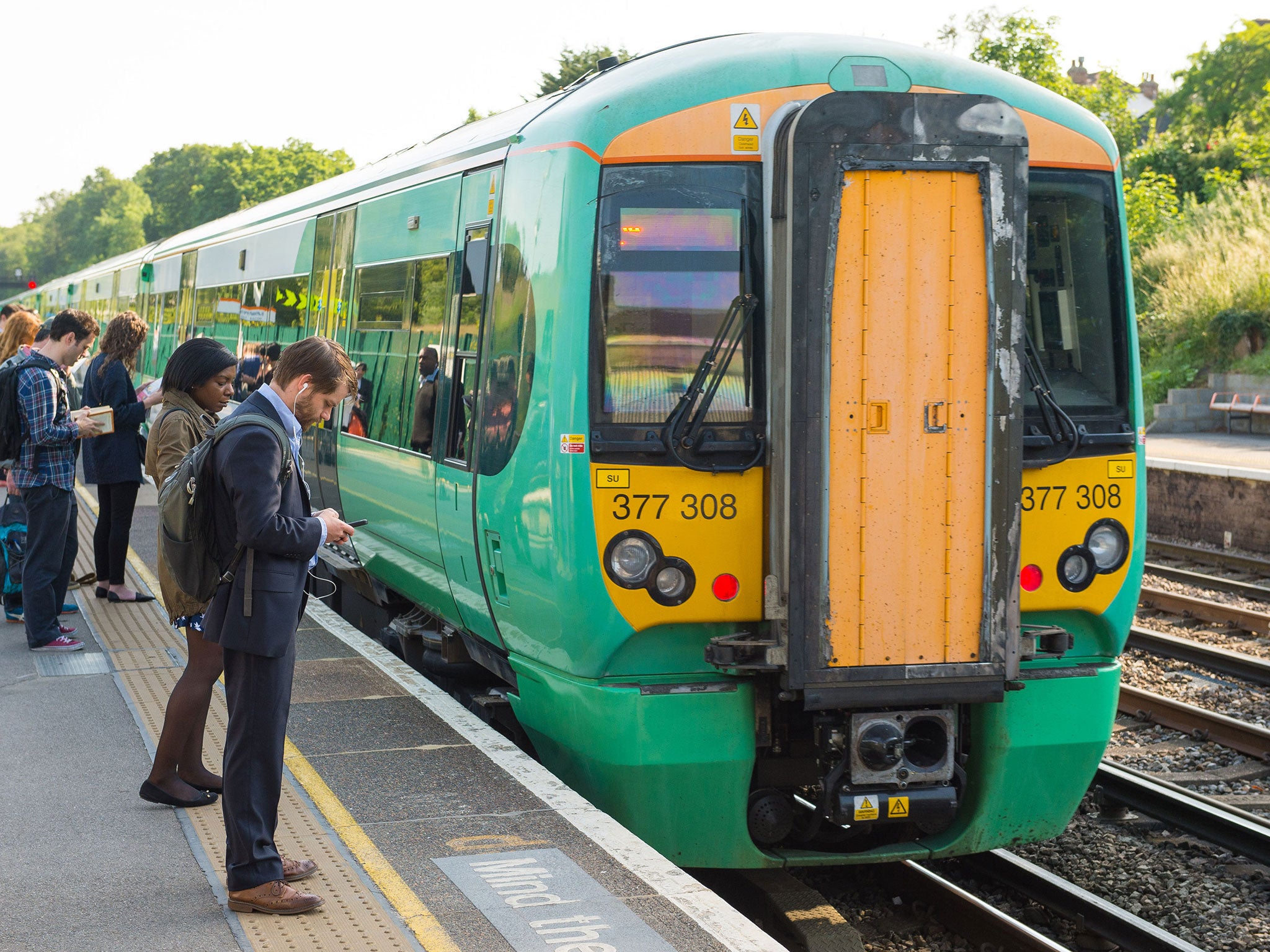Corbyn: Nationalising some rail services could cut ticket prices by 10%
'The Southern Rail debacle just goes to show how private transport operators cannot be trusted with having passengers best interests at heart,' Labour leader to say

Jeremy Corbyn is to set out a plan to make travelling by train 10 per cent cheaper, and to extend the reach of the bus network.
The Labour leader has advocated nationalising the rail services ever since they were first sold to private companies more than 20 years ago.
In a speech to launch what he calls ‘Transport Tuesday’, Mr Corbyn will cite research commissioned by the TUC which has suggested that renationalisation could improve the service and lower regulated fares by 10 per cent.
He will also claim that extending public control over Britain’s privatised bus services could save £340m a year, which he will promise to invest in improving rural and ‘socially useful’ bus services.
His call for nationalising the railways may resonate with passengers in Sussex, who have suffered months of delays, cancellations and strikes on the Southern Rail network, partly caused by work at London Bridge station.
Mr Corbyn was expected to say: “The Southern Rail debacle just goes to show how private transport operators cannot be trusted with having passengers best interests at heart.
“Public ownership of our railways is needed now to fix the transport nightmare we are currently faced with, and we know there is overwhelming support among the British public for a people's railway.
“It is only by bringing the railways back under public ownership as the contracts expire, that will fix the rail crisis and I'm pleased that even some Tory politicians are now joining us in calling for Southern rail to immediately be brought under public ownership”.
“Today I am also pledging that under my leadership, the next Labour government, will enable all local authorities to have franchising powers over their bus networks and enable all local authorities to establish municipal bus companies.
"Together these plans for the bus and rail network will help us rebuild and transform Britain’s transport system, so that no-one and no community is left behind."
In August last year, research carried out by the specialist firm Transport for Quality of Life (TfQL), commissioned by the TUC, calculated that if the rail services coming for retender by 2017 were renationalised, it could save £1.5bn over five years, and reduce the cost of a season ticket by 10 per cent.
TfQL has also carried out detailed research into the bus services, and found that the companies’ made profits that average £297m a year, and paid dividends to their shareholders of an average of £277m a year.
The firm calculated that if buses were run by local authorities rather than private companies, there would be a net financial gain of the order of £340m a year.
Join our commenting forum
Join thought-provoking conversations, follow other Independent readers and see their replies
Comments